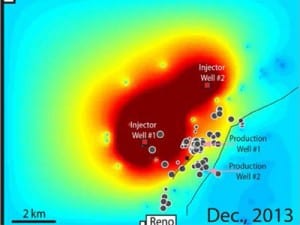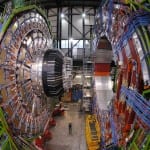Injecting fluids into the ground or extracting them has long been known to cause quakes, but rarely — if ever — have the two been caught acting in concert.

Science journalist Anna Kuchment with The Dallas Morning News covered the research of an SMU-led team of seismologists whose recent study found that large volumes of wastewater injection combined with saltwater (brine) extraction from natural gas wells is the most likely cause of earthquakes near Azle, Texas, from late 2013 through spring 2014.
The study published in Nature Communications.
The Dallas Morning News article published April, 21, 2015.
EXCERPT:
By Anna Kuchment
The Dallas Morning News
Oil and gas operations are the most likely cause of dozens of earthquakes that began rattling the North Texas towns of Azle and Reno in November 2013, a group of scientists has concluded.The study, led by researchers at SMU and published Tuesday in the journal Nature Communications, presents some of the most conclusive evidence yet that humans are shifting faults below Dallas-Fort Worth that have not budged in hundreds of millions of years.
While experts have not yet determined what’s causing the shaking in Dallas and Irving, the new paper previews aspects of that study and includes suggestions that will help speed research.
“It’s certainly one of the best cases in the literature,” said Art McGarr of the U.S. Geological Survey’s Earthquake Hazards Program in Menlo Park, Calif.
The new findings contradict statements by the Railroad Commission of Texas that there are no definitive links between oil and gas activity and earthquakes in the state.
Shown an embargoed version of the paper, the commission’s staff seismologist Craig Pearson wrote in a statement that “the study raises many questions with regard to its methodology, the information used and conclusions it reaches.” But he declined to answer specific questions before meeting with the paper’s authors. The Railroad Commission regulates the oil and gas industry.
The Azle study is the result of a yearlong collaboration involving 11 researchers at SMU, the University of Texas at Austin, and the U.S. Geological Survey and was reviewed by independent experts before publication.
The scientists zeroed in on an unusual mechanism behind the quakes: workers pushing liquid into the ground on one side of a fault and sucking gas and groundwater from the other side of the fault.
“The combination of these activities seems to have triggered the earthquakes, and that was a real surprise to us,” said Matthew Hornbach, a geophysicist at SMU and a lead author of the paper.
Injecting fluids into the ground or extracting them has long been known to cause quakes, but rarely — if ever — have the two been caught acting in concert.
The geology of each region is unique, however, so these mechanisms may not be at work elsewhere.
Follow SMUResearch.com on twitter at @smuresearch.
SMU is a nationally ranked private university in Dallas founded 100 years ago. Today, SMU enrolls nearly 11,000 students who benefit from the academic opportunities and international reach of seven degree-granting schools. For more information see www.smu.edu.
SMU has an uplink facility located on campus for live TV, radio, or online interviews. To speak with an SMU expert or book an SMU guest in the studio, call SMU News & Communications at 214-768-7650.



 SMU geothermal scientist Maria Richards to guide global energy organization
SMU geothermal scientist Maria Richards to guide global energy organization 17 million-year-old whale fossil provides 1st exact date for East Africa’s puzzling uplift
17 million-year-old whale fossil provides 1st exact date for East Africa’s puzzling uplift